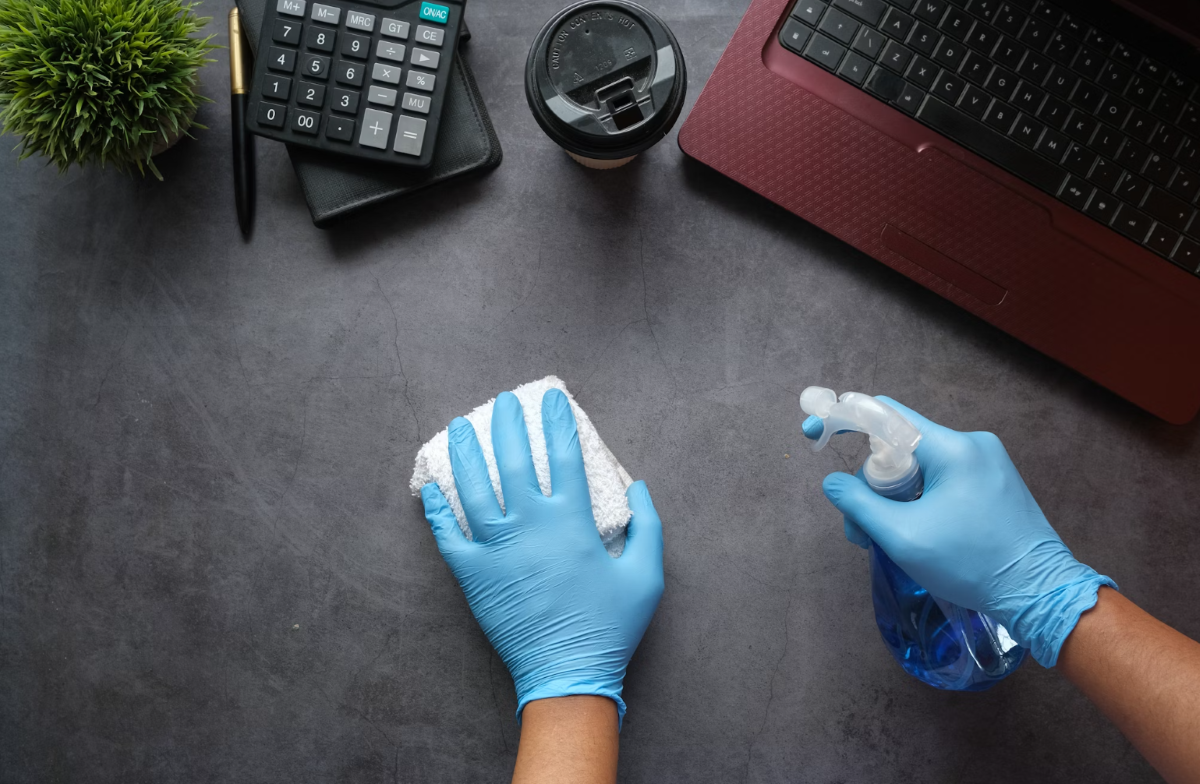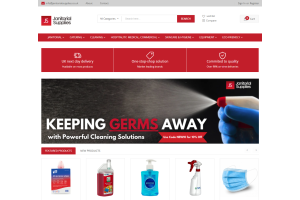
A clean workplace is not just about appearances—it is a crucial factor in maintaining staff health and well-being. Without proper hygiene practices, bacteria and viruses can spread quickly, leading to increased staff absences, decreased productivity, and higher costs for businesses. Using high-quality janitorial supplies is one of the most effective ways to prevent illness among employees. Below, we outline clear cleaning steps businesses should take and highlight the risks of neglecting workplace hygiene.
The Dangers of Poor Workplace Hygiene
Failing to implement a thorough cleaning routine can have serious consequences. Without proper sanitisation, shared surfaces, kitchen areas, and toilets can become breeding grounds for harmful bacteria and viruses. Here are some of the biggest risks of neglecting hygiene in the workplace:
Increased Staff Absences: Unclean environments contribute to the spread of illnesses such as colds, flu, and gastrointestinal infections, resulting in more sick days.
Lower Productivity: Employees who work in unhygienic environments may feel demotivated, affecting focus and performance.
Health & Safety Concerns: Poor hygiene can lead to the spread of more serious infections, potentially violating health and safety regulations.
Negative Business Reputation: A dirty workplace can create a negative impression on clients, visitors, and potential business partners.
Higher Costs: Increased sick leave leads to disruptions, potential overtime expenses, and higher spending on temporary staff.
Essential Cleaning Steps to Prevent Illness
To maintain a hygienic workplace and safeguard employee health, businesses should follow a structured cleaning routine using high-quality janitorial supplies.
1. Implement Daily Cleaning Procedures
A consistent daily cleaning routine is essential to preventing the build-up of bacteria and germs.
Workstations: Wipe down desks, keyboards, mice, and phones with antibacterial wipes.
Communal Areas: Disinfect tables, chairs, kitchen countertops, and appliances.
Toilets: Clean sinks, toilet seats, flush handles, and taps with disinfectant.
Bins: Empty waste bins daily to prevent odours and bacteria growth.
2. Encourage Proper Hand Hygiene
Hands are one of the biggest culprits in spreading germs around the office. To minimise cross-contamination:
Provide antibacterial hand soap in washrooms and kitchens.
Place hand sanitisers in high-traffic areas.
Educate staff on the importance of regular handwashing.
3. Focus on High-Touch Points
Certain areas are touched repeatedly throughout the day and require frequent disinfection:
Door handles and light switches
Lift buttons and stair railings
Shared office equipment (printers, copiers, keyboards)
Using disinfectant sprays and antibacterial wipes on these surfaces multiple times a day will significantly reduce germ transmission.
4. Deep Clean Weekly
A more thorough clean should be carried out at least once a week to ensure long-term hygiene:
Vacuum and mop all floors to remove dust and bacteria.
Sanitise kitchen appliances such as microwaves, kettles, and fridges.
Steam clean carpets and upholstery to remove hidden dirt and allergens.
Fully disinfect toilet areas and replenish hygiene supplies.
5. Improve Air Quality
Clean air is just as important as clean surfaces. Poor ventilation and dust build-up can lead to respiratory issues and allergic reactions. To improve air quality:
Use air purifiers to remove allergens and airborne bacteria.
Regularly replace air filters in heating and cooling systems.
Ensure proper ventilation by opening windows where possible.
The Risks of Not Using High-Quality Janitorial Supplies
Some businesses attempt to cut costs by using lower-quality cleaning products or failing to provide essential hygiene supplies. However, this approach can lead to more significant expenses in the long run. Here’s why investing in premium janitorial supplies is a must:
Ineffective Cleaning: Low-quality products may not eliminate all bacteria and viruses, increasing the risk of workplace illness.
Unhygienic Conditions: Insufficient hand soap, sanitisers, and paper towels encourage poor hygiene practices among staff.
Increased Contamination: Without the right disinfectants, high-touch areas remain breeding grounds for germs.
Workplace Complaints: Employees may raise concerns or feel uncomfortable working in an unclean environment, affecting morale and job satisfaction.
Why Choose Janitorial Supplies?
At Janitorial Supplies, we provide businesses with the essential cleaning and hygiene products needed to maintain a safe and healthy workplace. Our range includes:
Antibacterial hand soaps and sanitisers
High-quality disinfectant sprays and wipes
Industrial-strength floor cleaners and degreasers
Touch-free dispensers for hygiene and convenience
Air purifiers and fresheners to improve air quality
Conclusion
A clean workplace is not just about compliance—it’s about creating a healthier, more productive environment for your employees. By following clear cleaning steps and investing in high-quality janitorial supplies, businesses can significantly reduce staff illness, improve morale, and save money in the long run.
Don’t wait until sickness affects your workforce—take proactive steps today. Visit Janitorial Supplies to explore our range of cleaning and hygiene products designed to keep your workplace safe and sanitary.



